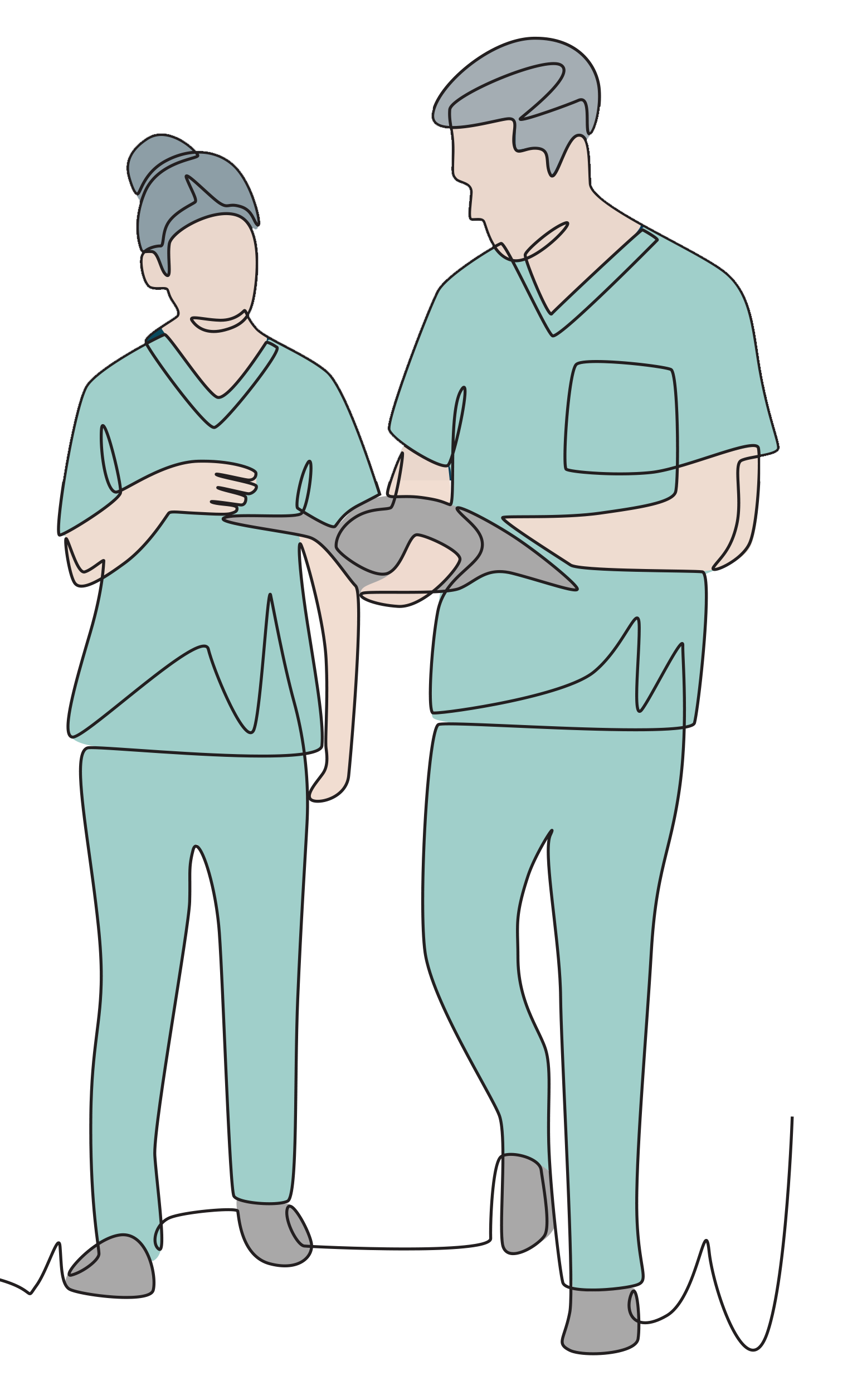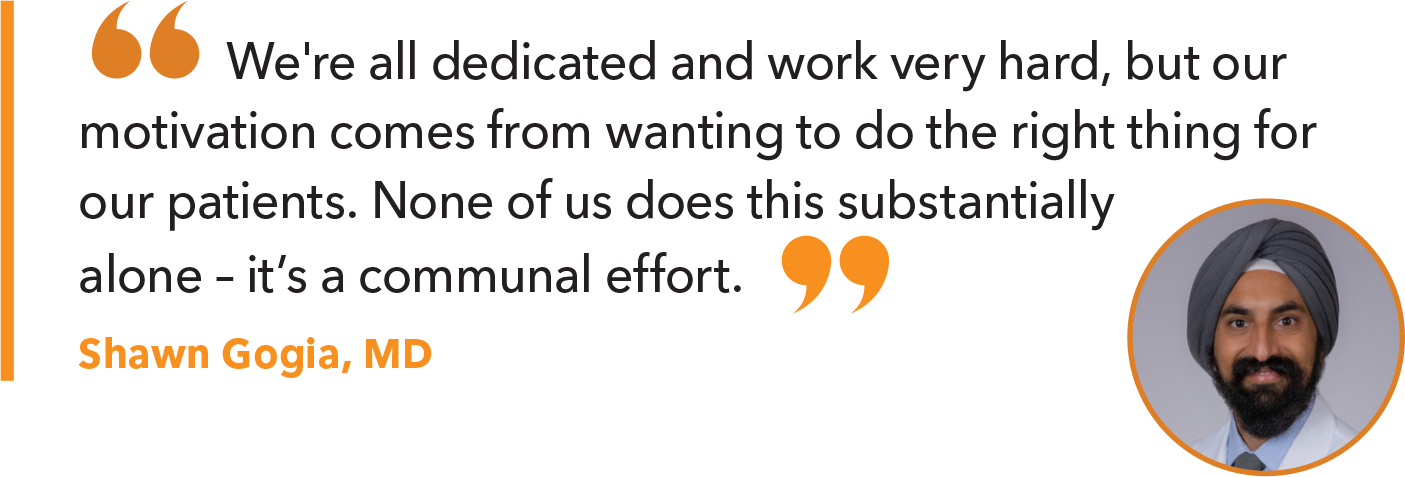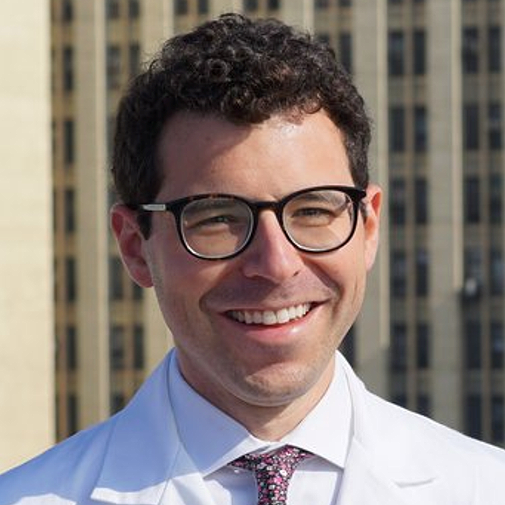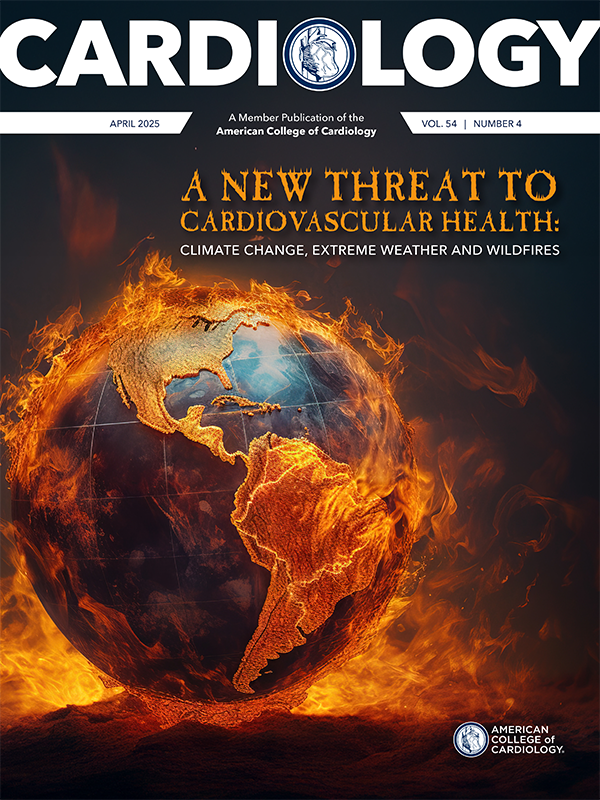For the FITs | Navigating Mentorship in Cardiology: From Fellow to Faculty

For cardiology fellows charting their course through training and beyond, mentorship often plays a crucial but complex role. In this candid conversation with Shawn Gogia, MD, and Jubin Joseph, MD, PhD, from the University of Southern California (USC), I explore how mentorship evolves and expands throughout a cardiologist's career. Gogia recently completed his structural heart disease fellowship and shares his fresh perspective as an early-career attending. His colleague and mentor, Joseph, reflects on his own path from mentee to mentor and his philosophy of collaborative learning.
Can you tell us about your respective backgrounds?
Gogia: I'm a structural interventionalist at USC Hospital. My path has been quite extensive – internal medicine at Massachusetts General Hospital in Boston, cardiology and interventional fellowships at Columbia University in New York, and structural heart disease training at Cedars-Sinai in Los Angeles. I've been fortunate to experience different institutions and learn from various mentors along the way.
Joseph: I'm the director of Structural Intervention at the USC School of Medicine. My training path was notably unconventional, beginning with medical school in the UK, followed by general cardiology training, a PhD in clinical physiology, and interventional fellowships across both the UK and U.S. This international experience spanning fourteen years of postgraduate training provided me with diverse mentorship experiences that shaped my perspective on medical education and leadership.
Would you share your perspectives on what makes effective mentorship?
Joseph: In my experience, mentorship manifests in three distinct but complementary ways. Clinical mentors are those whose practice style and patient care approach you aim to emulate. Lifestyle mentors demonstrate how to navigate the demands of our challenging profession while maintaining personal fulfillment and family life. Academic mentors show you how to balance research pursuits with clinical excellence. The beauty of this framework is that you don't need to find a single person who embodies all these qualities.
Gogia: Thinking about effective mentorship, two people from early medical school really stand out: a primary care physician and a general cardiologist at the University of California San Francisco. They fundamentally shaped the kind of doctor I wanted to become. Both were incredibly thoughtful, empathic and genuinely interested in their patients' well-being. They spent time understanding not just the medical issues but the personal circumstances affecting the health decisions their patients made. That's really the mark of someone you want as a mentor – find someone whose work you deeply respect, who you think approaches patient care the right way, and then work to build that relationship. The best mentors I've had could seamlessly integrate technical excellence with compassionate patient care.
How do you view your roles as mentors to trainees and other faculty?
Gogia: I've learned to be honest and transparent about the limitations of my experience. When fellows ask about job searches, I'm clear that I can only speak from my single, relatively early job experience. The key is maintaining humility and presenting your perspective rather than absolute truths. Medicine is a communal effort – none of us does this alone.
Joseph: I reject the notion of hierarchical mentorship. Instead, I view it as a collaborative learning environment where we all grow together. The key is to recognize that each person, whether fellow or new attending, brings their own unique experiences and knowledge to the table. My role is to help identify and build upon their strengths while supportively developing areas for growth. This approach needs to be dynamic – a first-year fellow requires different guidance than a third-year fellow who's chosen their subspecialty.
What advice would you give about seeking mentorship in a first job?
Gogia: Put mentorship at the top of your priority list when job hunting, right up there with salary, location and vacation time. I specifically chose my position because I knew the mentorship would be strong. Having strong mentorship, especially in your first job out of fellowship, is invaluable. Make it a non-negotiable part of your job search and dicuss it explicitly during interviews.

Joseph: After considering essential location constraints for family and personal needs, mentorship should be the absolute priority in job selection. You need to feel comfortable with who you'll call at 3 a.m. when you're stuck on a difficult case, because nobody leaves fellowship knowing everything. You'll actually learn more in your first few years as an attending than you did in fellowship, so finding an environment that supports this growth is crucial.
When interviewing for jobs, I advise fellows to look closely at the mentorship culture. How do the senior and junior attendings interact? Is there a collaborative atmosphere? Are there regular case discussions? Do they have a systematic approach to introducing new techniques or devices? These aspects are far more important than initial salary or call schedules because they'll determine your growth trajectory and job satisfaction.
Often I tell fellows about cases where having strong mentorship made a crucial difference. For instance, when implementing new techniques or handling complications, having experienced colleagues who are accessible and supportive can be the difference between success and failure. This kind of support isn't just about technical guidance – it's about having someone who can help you navigate the political landscape, handle difficult conversations with referring physicians, and manage the emotional aspects of challenging cases.
Gogia: I wanted an environment where I could continue to grow, where asking questions wasn't seen as a weakness but as a commitment to excellent patient care. When I interviewed, I paid attention to how the early-career attendings were supported. Were they thrown into complex cases alone, or was there a systematic approach to building independence? Looking back, I'm grateful I prioritized mentorship. In my first year as an attending, I encountered numerous situations that weren't covered in fellowship: complex decision-making about patient selection, handling complications I hadn't seen before, navigating hospital politics, and building referral relationships. Having strong mentorship helped me navigate these challenges while maintaining confidence and ensuring patient safety.
What was the most valuable advice you've received as a mentee?
Joseph: The most impactful advice came from a congenital heart disease specialist, Dr. Oliver Ormerod, who sadly passed away recently. His wisdom was profound: never define yourself by a procedure, but rather by your mastery of treating disease. He cautioned against becoming 'the TAVR guy' or 'the ablation specialist,' noting that specific techniques will evolve and change throughout your career. However, if you focus on becoming an expert in treating disease processes, you'll remain valuable and effective throughout your career.
What has surprised you most in your mentorship relationships?
Gogia: This really surprised me: I found myself modeling after the young attendings rather than the department chiefs. These were attendings who had just gone through what I was experiencing and were working incredibly hard, often as hard as or harder than the fellows. Seeing how they navigated the transition from fellow to attending, understanding their work-life balance, watching how they handled the political landscape – that was invaluable.
Don't just look for the biggest name; look for someone a few years ahead who's doing the job well. Also, the sheer generosity of people in our field continues to amaze me. During my job search, people I barely knew went out of their way to help me, making calls and opening doors, gaining absolutely nothing in return. These relationships take work to develop, but they're incredibly worthwhile because you find genuinely good people who want to see you succeed.
Joseph: What brings me the most joy is watching the evolution of independence in our graduates. When they first start their attending careers, they text me about every case, seeking guidance and reassurance. Over time, these messages gradually decrease in frequency, and more importantly, they transform from questions about 'how do I handle this?' to proud announcements of 'look what I accomplished!'"
What was your specific mentor/mentee relationship?
Joseph: I see it as a collaborative relationship rather than top-down. We're lucky to have someone like Shawn who is genuinely enjoyable to be around, always willing to help, learn and share knowledge. These are exactly the traits you look for in a colleague. When building a department, these soft skills and personality traits – the desire to work and ability to work effectively with colleagues in challenging environments – are actually more important than direct clinical competence coming out of fellowship. These traits set you up for a long successful career, and Shawn has all those qualities, which makes it quite easy to help him be the best cardiologist he can be.

Gogia: I've gotten very lucky with Jubin. He's been an incredible source of support for me, both in mentorship and in life. While many times what we discuss is technical, there's a deeper level of support there. If I need him for something, he'll be there, and if he needs me for something, I'll be there. Despite being only a few years ahead of me, he's technically extremely competent. Just by virtue of asking him questions when they come up, I feel like I become a stronger interventionalist and smarter doctor. My goal is to one day be as good as him, though I'm not sure that will happen. We're all dedicated and work very hard, but our motivation comes from wanting to do the right thing for our patients. None of us does this substantially alone – it's a communal effort.
How do you see your roles evolving in the future?
Joseph: Medical education is cyclical. We're constantly welcoming new attendings into academic practice, helping them find their footing, and then watching them become mentors themselves. My role is evolving toward 'training the trainers,' taking a more senior position in guiding newer faculty in their teaching roles while remaining available for direct mentorship when needed. The ultimate goal of any leader should be to build a department that can function seamlessly in their absence.
Gogia: I want to model the generosity I've experienced. Unlike other competitive fields, in medicine, everyone's success contributes to better patient care. When we help others improve, we all get better. It's not a zero-sum game – it's about collective growth for our patients' benefit. Every relationship we build, every bit of knowledge we share, ultimately serves that purpose.

This article was authored by Kenneth Guber, MD, a second-year general cardiology fellow at USC.
Learn about and join ACC Member Sections, including Fellows in Training, Early Career Professionals and Interventional Cardiology and more.
Keywords: Cardiology Magazine, ACC Publications, Education, Medical, Mentors, Patient Care

